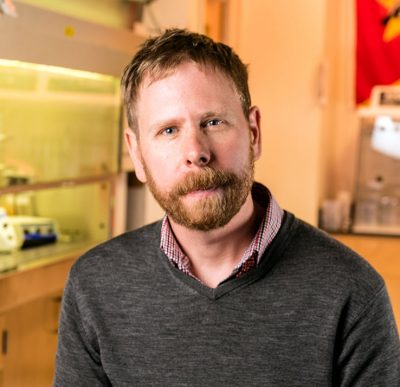Sanitation innovation holds promise but must consider risks to users
May 27, 2022
In an invited perspective written earlier this year, a UNC Gillings School of Global Public Health faculty member weighs innovative strategies for more productive use of human and animal waste with potential negative side effects.

Dr. Joe Brown
Joe Brown, PhD, associate professor in the Department of Environmental Sciences and Engineering, published the perspective in Environmental Health Perspectives.
In it, he states that humans and domestic animals produce an enormous amount of fecal waste, with animals creating six times as much waste as humans. Around the world, much of this waste is poorly managed — especially in low- and middle-income countries where engineering solutions may be limited and humans and animals often live in close proximity. These conditions contribute to a higher incidence of sanitation-related disease.
“Productive use of human and animal waste presents a compelling option for safe management of excreta,” Brown writes. “Such strategies create a potential ‘win–win’ through valorization: If value-added products can be reclaimed from nutrient- and energetically rich ‘waste,’ these materials become an economic resource, incentivizing their removal from the local environment.”
For example, it is possible to turn fecal waste into biogas or biomass fuels. Producing energy in this way can support job creation and economic growth while physically removing waste from communities. However, this approach also carries increased risk of exposure to waste, which often carries highly transmissible pathogens that can cause serious illness.
Brown references a large-scale, longitudinal study of domestic biogas production in Nepal, in which the goal was to reduce household reliance on wood-burning stoves while also improving sanitation. The research team noted a significant increase in diarrhea among children whose households were actively using biogas digesters. They attributed this rise in illness to increases in animal and waste handling by household members.
The researchers also reported higher rates of diarrhea among exclusively breastfed infants in the household. Frequent diarrheal episodes in very early childhood can result in malnutrition, stunted growth and cognitive deficits.
Clearly, innovative strategies for waste management must be piloted hand-in-hand with thorough assessments of the risks to direct users of the technology, their household members and the broader community.
“Since the Victorian era, sanitation planning has mainly focused on removing excreta from where people live, and this has resulted in substantial long-term gains in global public health,” Brown explains. “But the future of excreta management may include a greater emphasis on productive use, which will necessarily entail a paradigm shift away from the existing practice of moving excreta as far away from people as possible. It may well be advantageous to use excreta productively on-site — where wastes are generated — so that the benefits may be captured locally. But this is a tall order: Excreta is hazardous waste, and treating it effectively and safely takes substantial energy and time.”
Decentralized waste management that relies on members of individual households to manage waste safely must be designed with the end users in mind, so potential solutions remain viable in real-world settings. The need for innovative waste disposal solutions is urgent, but, as Brown puts it, “Public health interventions should firstly do no harm.”
Contact the UNC Gillings School of Global Public Health communications team at sphcomm@unc.edu.
